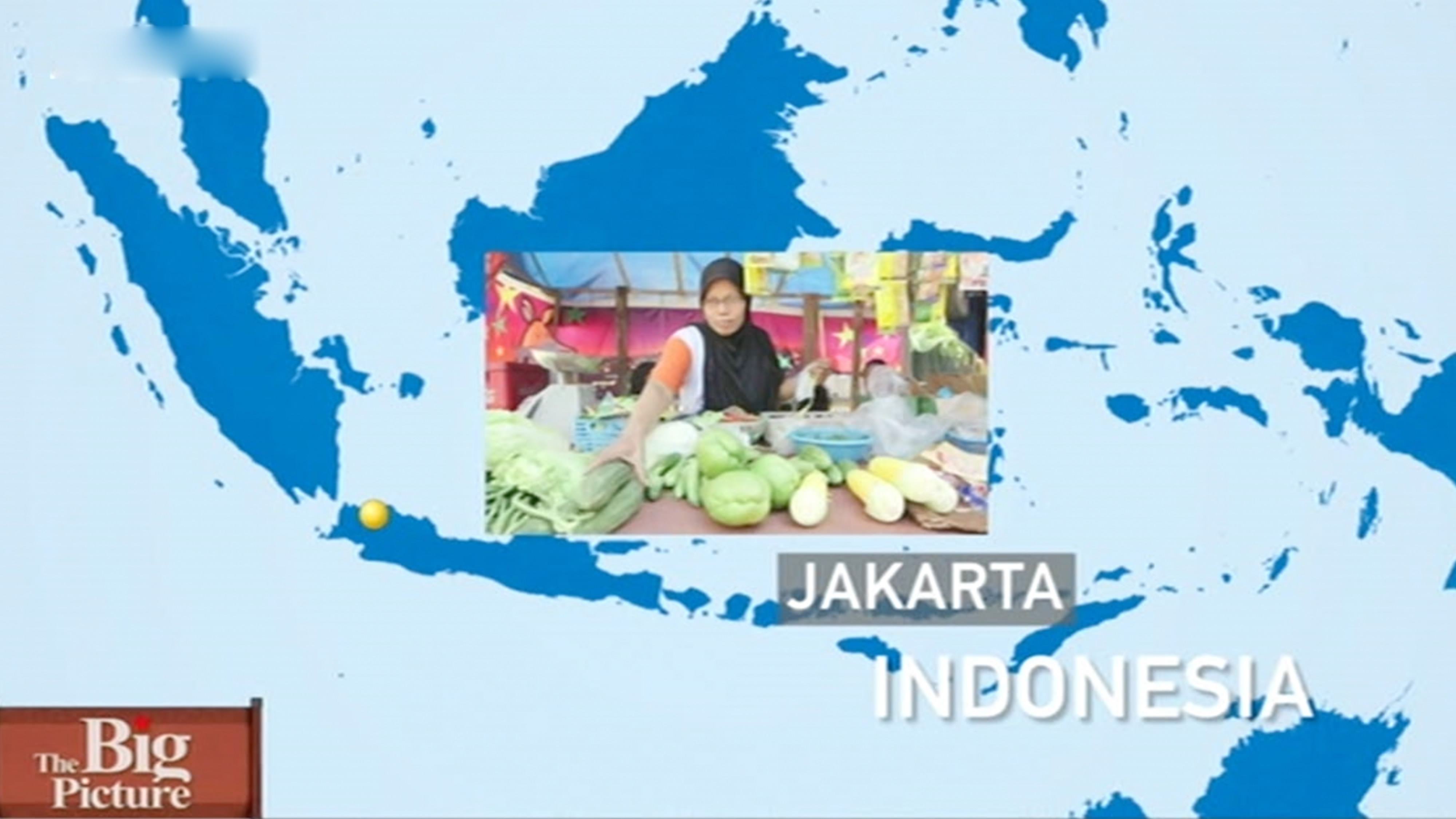
China
14:57, 22-Sep-2017
The Big Picture: Urban development
By CGTN's Silkina Ahluwalia

Sri will never forget the day authorities arrived at her home by the river. It was 7:30 a.m. She had just sent her youngest son to school when the news broke that she had to move out of her house, a place she had called home for nearly 50 years.
That was five years ago. Today, her family of four lives in a rented flat provided by the government.
Sri, now 45, is one of millions of riverside-dwellers evicted from their homes as part of the Indonesian government’s efforts to eradicate slum areas across the country.

A man living in low-cost government housing in North Jakarta. /CGTN Photo
A man living in low-cost government housing in North Jakarta. /CGTN Photo
The city of Jakarta is notorious for its heavy flooding. The government believes informal settlements are the cause of that problem.
The waterways are polluted with thick waste and other hazardous materials, mainly from factories operating by the river, exposing the residents to unhygienic living conditions.
The reasoning behind eliminating slum areas may seem positive, but the effects are tough on people like Sri, who’s had a difficult time adjusting to vertical living.
“I cannot afford to pay for electricity now. In my old home, it was different. I only paid 20 US dollars for electricity. Now, I pay for water, electricity and rent. It all adds up to more than 60 US dollars a month,” says Sri.
The urban development boom is fast taking over Jakarta. Low-cost housing is being built across the city. The head of Jakarta’s Public Housing agency, Agustino Darmawan, claims that those forced evictions were necessary.

Residents’ evening activities in a low-cost housing complex provided by the government. /CGTN Photo
Residents’ evening activities in a low-cost housing complex provided by the government. /CGTN Photo
“Slum areas are mostly located on government land, so we are obligated to control those areas. However, we give a lot of support to the residents relocated to low-cost housing. We give them affordable healthcare cards, transportation, and other necessary facilities,” he says.
Eny Rochyati couldn’t disagree more. As a program leader for Urban Poor Consortium, an NGO, she has worked directly with residents forcefully removed from their homes.
“The government says that relocating these people has everything to do with human rights. But we speak to these families directly and they don’t feel protected at all," Eny said.
"Relocation is just another form of poverty. At least before, they could say that the house they lived in belonged to them. But in these flats, they own nothing. They will be renting for the rest of their lives."
For many Indonesians, culture and tradition plays an important role in their lives. For those who lived by the river, their homes represented a large part of their family’s history.
Preserving that tradition, while developing sustainable methods when dealing with slum-dwellers, should remain the government’s priority.
5236km


SITEMAP
Copyright © 2018 CGTN. Beijing ICP prepared NO.16065310-3
Copyright © 2018 CGTN. Beijing ICP prepared NO.16065310-3